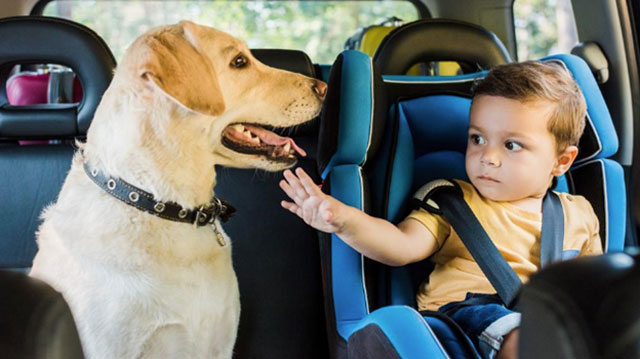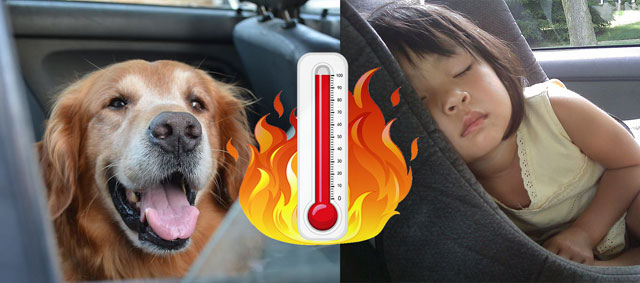The Dangers of Children or Pets Locked in Cars and How to Respond Safely
2025-07-08 11:04

Every year, heartbreaking stories make the news: children or pets left in parked cars, sometimes with tragic results. Despite public awareness campaigns, the problem continues to occur far too often. Whether due to distraction, misunderstanding, or accidental lockouts, leaving a child or animal alone in a vehicle-even for a few minutes-can be extremely dangerous. In this article, we'll explore why this is such a serious issue, and what steps you can take to respond quickly and safely if it happens to you or someone else.
Why It's So Dangerous
Cars can heat up far more quickly than people realize. On a sunny day, even with windows slightly open, the temperature inside a parked car can rise by 20°F (about 11°C) in just 10 minutes. After 30 minutes, it can climb by nearly 40°F. That means that on a relatively mild 75°F (24°C) day, the interior of a car can reach 115°F (46°C) or more in half an hour.
For children, their bodies heat up three to five times faster than adults, making them especially vulnerable to heatstroke. In extreme heat, this can lead to organ failure and even death in less than an hour.
For pets, especially dogs and cats, the danger is just as severe. Pets cannot sweat like humans, and rely mostly on panting to cool themselves. In a hot car, this isn't enough to regulate their body temperature, which can lead to fatal overheating very quickly.

Common Scenarios That Lead to Lock-ins
1.Accidental lockouts - A child or pet may hit the lock button, or keys may be left inside the car.
2.Routine distraction - Caregivers may forget a child is in the back seat, especially if routines are different.
3.“Just a minute” mindset - Some people believe leaving someone in the car for a short errand is harmless.
4.Pets during travel - Dogs or cats left in cars during road trips or while shopping.
What to Do If You Find a Child or Pet Locked in a Car
Step 1: Assess the Situation
Look for signs of distress. Is the child crying, lethargic, sweating, or unresponsive? Is the pet panting heavily, vomiting, or collapsed?
Step 2: Call Emergency Services
In most countries, you should immediately call emergency services (911 in the U.S., 999 in the U.K., etc.). Provide the exact location and describe the condition of the child or pet.
Step 3: Take Action
If emergency services are delayed and the person or pet appears to be in danger, you may be legally allowed to break the window-but laws vary by location. Some areas have “Good Samaritan” laws that protect you from legal liability when acting in good faith to save a life.
If you break the window, choose one furthest away from the child or pet to avoid injury from broken glass.
Prevention Tips
●Use reminders, such as keeping your phone or handbag next to your child, to make sure you always check the back seat before securing your car.
●Lock your car when not in use, even in your driveway, to prevent pets or children from climbing in unnoticed.
●Never leave a child or pet unattended, even if the windows are cracked or the engine is running.
●Inform caregivers or babysitters about these safety practices.
●Use aftermarket car alarms or child-detection systems, some of which alert your phone if someone is left behind.
●For extra preparedness, keep an emergency unlock tool in your vehicle—again, you can buy Car Lockout Kit at barhomevip.com to ensure you have the right tools in case of a lock-in incident.
Conclusion
The danger of leaving a child or pet inside a locked car cannot be overstated. Even a short period of time spent in a heated car might have permanent effects. Understanding the risks and being prepared to act quickly can save lives. Whether you're a parent, a pet owner, or a bystander, knowing how to prevent and respond to these situations is part of being a responsible and compassionate member of your community.
Stay alert. Stay safe. And never leave someone you love in a car-no matter how quick the errand may seem.
 Promotion: 5% Discount Code: 5vip
Promotion: 5% Discount Code: 5vip